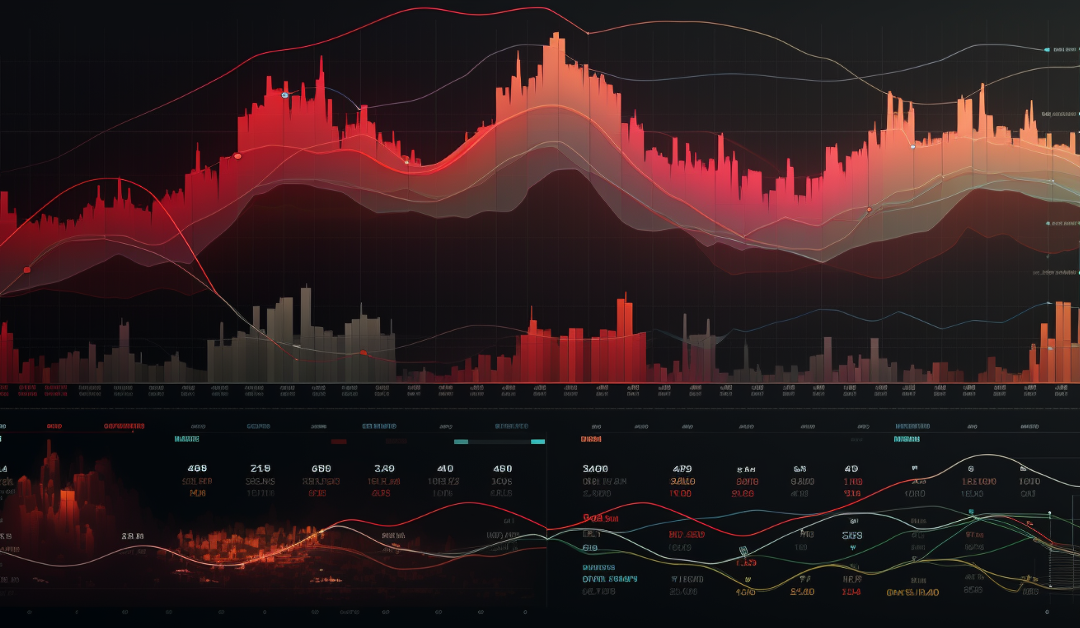
by Samuel Mbaki | Aug 15, 2023 | Blockchain
Key Points
- Decentralized asset management platform Valio launches, promising users control of their assets and immersion into Web 3
- The platform targets “leveling the playing field” for investors.
Valio, a new decentralized asset management system, has launched publicly, aiming to allow users to have their funds managed by professional traders without trusting them as custodians.
Leveling the playing field?
As Web 3 keeps evolving, new solutions are coming up now and then. Some of these solutions aim to increase users’ productivity in the Web 3 sector. In that line, Valiio, a new decentralized asset management system, has come up to allow users to have their funds managed by traders trustlessly.
The application allows investors to browse a list of managers and view their trade stats via an explore page. If the investor back a particular money manager, they can deposit their assets to participate in that manager’s fund. These funds are then held in smart contracts, ensuring the manager cannot withdraw them.
In conversations with Fintech Express, the platform’s founder, Karlis, told us that the platform simply aims to increase smart access to crypto and ensure investors do not have to guess through what tokens to invest in.
“Valio provides simple access to smart crypto exposure. With Valio, you no longer have to guess what tokens to buy, but instead, you can back proven Web3 traders and asset managers trustless.”
During the launch, Valio is integrated with Optimism and Arbitrum. Still, Karlis told us that they expect to launch it on networks like Ethereum Mainnet and Base soon, as well as any other network their community wants.
Right now, Valio is live on Optimism and Arbitrum. We plan to launch on Ethereum mainnet and Base and any other LayerZero-supported networks the community wants.
According to Karlis, the platform also uses a “cumulative price impact tolerance architecture” that limits the amount of price impact money managers can cause to an individual investment. This functionality is added to prevent managers from drinking user money into illiquid assets.
He added that this ensures that even if a corrupt manager decides to make away with the money, he can only take 3 to 5%, which is much lower than what could have been earned honestly.
“The Cumulative Price Impact Tolerance (CPIT) is a custom-built security architecture that allows Valio to facilitate a trustless and non-custodial asset management relationship between traders and depositors. The CPIT solves the billion-dollar fraud problem in our industry by eliminating the need for trust between managers and depositors while protecting depositors from rugs. Existing asset management platforms also limit trader scope as they scale TVL, whereas our CPIT does not do that.” He said.
In summary, Karlis said they were glad about the success they saw at the project launch and believe they have unlocked a new asset class for the industry that will reshape the industry. He added that though it is in its initial phases, they aim to keep building Valio up into the future.
“We have been thrilled with the usage we have seen so far. We’ve seen over 100 new vaults created since launch, and users seem to enjoy the product. Although it’s still in the early stages with limited functionality, we’re excited about the future as we continue to grow Valio. We believe that we have unlocked a new asset class for the industry.”
Keep watching Fintech Express for more updates on Web 3 and other fintech-related developments.

by Samuel Mbaki | Aug 15, 2023 | Finance
Key Points
- The Bank of Russia has introduced new interest rates as the Ruble falls to hit an almost 17-month low against the dollar.
- The interest rate hike was done during an emergency meeting after the Ruble was gripped by a drop in value past the 100 mark against a US dollar
Bank of Russia has hiked interest rates by 350 basis points to 12 % during an emergency meeting as Moscow looks into halting the rapid depreciation of the Ruble.
The Bank of Russia introduced higher interest rates to tame rising inflation
The Ruble slumped past the 100 mark to the dollar on Monday, with President Putin’s economic advisor, Maxim Oreshkin, blaming lax monetary policies due to the fall in the coin’s value.
Oreshkin wrote an article to the Russian State-owned Tass news agency saying the plunging currency and acceleration in inflation result from “loose monetary policy.” Consequently, the Bank of Russia announced an emergency meeting on Tuesday to reassess its key interest rates, which stood at 8.5%.
In the meeting, they announced a hike by 350 basis points taking the total interest rates to 12%. As a result, faith in the Rubble increased with it, dropping to 95 against the dollar during the time of writing.
Keep watching Fintech Express for more updates on this and other finance-related developments.

by Samuel Mbaki | Aug 14, 2023 | Finance
Key points
- China’s economic turmoils keep increasing as credit data released Friday shows a slump in demand for households and businesses borrowing money.
- Developer Country Garden suspended trading at least 10 of its mainland-china traded Yuan bonds.
China’s economy is set to endure more pain as a slump in demand for borrowing money reflects in recent credit data. Real estate problems now persist as consumer sentiment grows weak.
More pain for Chinese markets going forward?
The Chinese economy has been heavily impacted by economic installment. What was considered a promising economy to turn around world economic issues via opening supply chains has now more than stalled.
Credit data released last Friday show the country is experiencing increasingly low demand for borrowing money. This, in turn, affects property markets as fewer people are expected to invest in real estate in the coming months there. Once a very stable real estate company, Country Garden is now on the brink of default, with many other competitors in turmoil.
New local currency bank loans plunged 89% in July from June to 345.9 billion Yuan, much lower than the forecasted 800 billion Yuan. This was the lowest loan number since late 2009. The real estate sector, where most of the country’s household wealth is, has been impacted, and concerns are rising around it.
Developer Country Garden announced this weekend that it suspended at least 10 mainland China-traded yuan bonds. Last week, it missed coupon payments on two U.S. dollar-denominated bonds, with its U.S. bonds accounting for just under half of outstanding high-yield U.S. dollar-denominated bonds.
Keep watching Fintech Express for more updates on finance and other fintech-related developments.

by Samuel Mbaki | Aug 14, 2023 | Finance
Key Points
- The Russian Ruble has slumped harder against the US Dollar as it trades at a near 17-month low.
- President Vladimir Putin’s economic advisor blames loose monetary policy for the rapid depreciation of the Ruble.
- The Bank of Russia blames the country’s shrinking trade balance as its current account surplus fell 85% YoY from January to July.
Russian Ruble fell to 17-month record levels of 100 per USD on Monday as the country battles a shrinking trade balance. The current account surplus dropped by 85% YoY from January to July as Western sanctions pushed the country further.
Russian Ruble trades at 100 against the US dollar
Since Russia invaded Ukraine, the country has been experiencing turmoil with holding up the value of the Rubble as harsh economic sanctions from the West have been imposed on it. The West has also been aiding Ukraine economically in the war, which prompts Russia to spend more to sustain its offensive missions.
As an aftermath, the Russian Ruble slid past the 100 mark against the USD on Monday, nearing a 17-month low. The country’s presidential economic advisor blamed loose economic and monetary policy for weakening the Rubble.
This year alone, the Ruble has lost value by 30% against the greenback. This situation has prompted the Bank of Russia to blame the country’s balance of trade as its current account surplus fell 85% year-on-year from January to July.
“A weak ruble complicates the restructuring of the economy and negatively affects the population’s real incomes. In the interests of the Russian economy — a strong ruble,” President Putin’s economic advisor Maxim Oreshkin said.
Last week, the Bank of Russia halted foreign currency purchases for the remainder of the year to shore up the currency as the country battles increasing isolation from Western sanctions.
While fears of rising inflation grip Russia, its GDP exceeded expectations and grew by 4.9% year on year in Q2, per figures from the Federal State Statistics Service, which s a rebound from a 1.8% contraction in Q1. Keep watching Fintech Express for more updates on finance and other fintech-related developments.

by Samuel Mbaki | Aug 14, 2023 | Cryptocurrencies
Key points
- PayPal is set to launch a cryptocurrencies hub for select users
- The adoption of crypto solutions is part of the platform’s plan to reinvent itself as a crypto-inclusive platform
PayPal recently launched a stablecoin in a push to rebrand as a crypto-inclusive payments platform. On Monday, it also announced it was also rolling out a cryptocurrency hub for select users.
Paypal’s crypto endeavors continue
Paypal’s new cryptocurrencies hub will allow for the sale and purchase of crypto assets, among other crypto-friendly functionalities. The payment company’s recent terms and conditions update detail the prerequisites for crypto users interested in trying out the new platform.
The Cryptocurrencies Hub service will also facilitate the payment of purchases via PayPal using money stored after the sale of crypto assets. It will also be crucial in the conversion between PYUSD and other crypto assets.
PayPal further released a statement explaining that any balances in the Cryptocurrencies Hub represent a user’s ownership of the amount of each crypto asset displayed. As such, users will not hold the digital crypto assets in their crypto asset balance.
Since this feature is still in the pilot phase, not all PayPal users will get to explore it. The eligible users of the Cryptocurrencies HIb must have “a personal PayPal account and a Balance Account in good standing.” Additionally, PayPal will verify the required identifying information like names, taxpayer identification numbers, and physical addresses.
“You can only use your Cryptocurrencies Hub as part of your Balance Account by accessing it through your personal PayPal account. If you are a Hawaii resident, we will not allow you to establish a Cryptocurrencies Hub now.”
Upon launch, the Cryptocurrencies Hub will be connected with PayPal users can access it using existing credentials. These developments come days after the company launched a highly divisive crypto stablecoin pegged on the US Dollar, the PYUSD.
Some feel that it may propel the mainstream adoption of crypto assets, while others believe it may bring trouble in decentralization as the company has its smart contracts infused with functions like “freeze funds” and “wipefrozenfunds” which goes against the spirit of decentralization.
Keep watching Fintech Express for more updates on this and other fintech-related developments.





